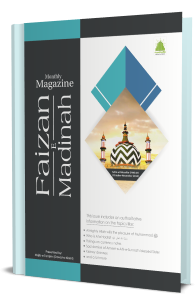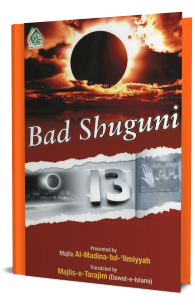
What is the Islamic ruling on performing Nikah in the month of Safar?
Question 1: What do the blessed Ulama [Islamic scholars] and Muftis [Islamic jurists] state regarding the following matter: Is it forbidden in Shari’ah to perform marriage and other such acts in the month of Safar?
بِسْمِ اللّٰہِ الرَّحْمٰنِ الرَّحِیْمِ
اَلْجَوَابُ بِعَوْنِ الْمَلِکِ الْوَھَّابِ اَللّٰھُمَّ ھِدَایَۃَ الْحَقِّ وَالصَّوَابِ
It is undoubtedly permissible to perform Nikah in the month of Safar. Some people do not perform marriage in the month of Safar because of holding a belief that evils and troubles descend in this month and it is an unlucky month. This belief is merely Baatil [invalid] and Mardood [rejected], having no basis. In fact, people used to consider it unlucky in the age of ignorance, so the Beloved Rasool صَلَّى اللّٰهُ تَعَالٰى عَلَيْهِ وَاٰلِهٖ وَسَلَّم forbade [the people] from considering it unlucky.
وَاللہُ اَعْلَمُ عَزَّوَجَلَّ وَ رَسُوْلُہ اَعْلَم صَلَّی اللّٰہُ تَعَالٰی عَلَیْہِ واٰلِہٖ وَسَلَّم
Written by: Abu Saaleh Muhammad Qaasim Al-Qaadiri
Having construction work carried out in the months of Safar and Rabi-ul-Awwal
Question 2: What do the blessed Ulama and Muftis state regarding the following matter: Can we have the construction work carried out in the month of Safar or Rabi-ul-Awwal, or not? Some people consider carrying out work in these months to be harmful and unlucky. What is the right concept regarding it?
بِسْمِ اللّٰہِ الرَّحْمٰنِ الرَّحِیْمِ
اَلْجَوَابُ بِعَوْنِ الْمَلِکِ الْوَھَّابِ اَللّٰھُمَّ ھِدَایَۃَ الْحَقِّ وَالصَّوَابِ
Construction or any other permissible work can be carried out in Safar, Rabi-ul-Awwal or any other month; there isn’t any Shar’i prohibition of it. Moreover, it is wrong and has no basis if someone considers carrying out work in these months to be harmful and unlucky, and such an opinion was held in the age of ignorance; Islam has forbidden from it.
Furthermore, the health of the Beloved Rasool صَلَّى اللّٰهُ تَعَالٰى عَلَيْهِ وَاٰلِهٖ وَسَلَّم got affected in this month (i.e. Safar-ul-Muzaffar) but this month cannot be called unlucky because of this reason, as, if this [concept] is considered right, one will have to declare that month to be unluckier in which the Beloved Rasool صَلَّى اللّٰهُ تَعَالٰى عَلَيْهِ وَاٰلِهٖ وَسَلَّم passed away (apparently) and [declaring] it is completely invalid.
وَاللہُ اَعْلَمُ عَزَّوَجَلَّ وَ رَسُوْلُہ اَعْلَم صَلَّی اللّٰہُ تَعَالٰی عَلَیْہِ واٰلِہٖ وَسَلَّم
Written by: Abu Saaleh Muhammad Qaasim Al-Qaadiri
Repaying debt at the present value
Question 3: What do the blessed Ulama and Muftis state regarding the following matter: If a person borrowed a million rupees from someone fifteen or twenty years ago and now wishes to repay it, is it compulsory for him according to Shari’ah to repay only a million [rupees] or does he need to repay more amount of money according to the present value because the value of a million [rupees] was too much twenty years ago but it does not have the same value nowadays. Please give us guidance on this matter.
بِسْمِ اللّٰہِ الرَّحْمٰنِ الرَّحِیْمِ
اَلْجَوَابُ بِعَوْنِ الْمَلِکِ الْوَھَّابِ اَللّٰھُمَّ ھِدَایَۃَ الْحَقِّ وَالصَّوَابِ
The Shar’i ruling states that it is compulsory to repay the same amount of money which was borrowed, not more than it. It will make no difference whether the value has increased or decreased. Therefore, if a million rupees was borrowed twenty years ago, it is compulsory to repay only a million rupees now. It is not permissible for the lender to demand more money even though the value of a million [rupees] was too much twenty years ago.
وَاللہُ اَعْلَمُ عَزَّوَجَلَّ وَ رَسُوْلُہ اَعْلَم صَلَّی اللّٰہُ تَعَالٰی عَلَیْہِ واٰلِہٖ وَسَلَّم
Answered by: Abu Huzayfah Shafeeq Raza Attari Madani
Approved by: Abu Saaleh Muhammad Qaasim Al-Qaadiri
Children’s act of writing on the Holy Quran, made Waqf [i.e. dedicated by someone]
Question 4: What do the blessed Ulama and Muftis state regarding the following matter: When the Holy Quran, made Waqf to the Madrasah, is given to the children for studying during Hifz[1] and Naazirah[2], they write their names on the Holy Quran for identification and also make marks to remember their mistakes; so is it permissible to use the copy of the Holy Quran, made Waqf, as one’s personal possession, or not?
بِسْمِ اللّٰہِ الرَّحْمٰنِ الرَّحِیْمِ
اَلْجَوَابُ بِعَوْنِ الْمَلِکِ الْوَھَّابِ اَللّٰھُمَّ ھِدَایَۃَ الْحَقِّ وَالصَّوَابِ
Name should not be written on the Holy Quran, made Waqf to the Madrasah. The management should write a specific number on the copy of the Holy Quran, made Waqf, for its protection and should keep its record safely so that it is clearly known while giving to the children that which copy of the Holy Quran has been given to which child. In this way, there will be a difference [of number] between the copies used by the children and they will not use each other’s copy, and the [copy made] Waqf will also be protected. Making marks for remembering their mistakes means using the [copy made] Waqf as one’s personal possession which is impermissible.
However, if the copy of the Holy Quran belongs to an individual, one can write name on it, and making marks for remembering his mistakes is also permissible. It should still be taken care that large marks are not made; instead, small mark should be made at an empty place where letters and diacritics are not written, with such a pencil whose mark can be erased so that those marks can be erased later on.
وَاللہُ اَعْلَمُ عَزَّوَجَلَّ وَ رَسُوْلُہ اَعْلَم صَلَّی اللّٰہُ تَعَالٰی عَلَیْہِ واٰلِہٖ وَسَلَّم
Written by: Abu Saaleh Muhammad Qaasim Al-Qaadiri
Ruling on listening to the Kalimahs from the bride and groom at the time of Nikah
Question 5: What do the blessed Ulama and Muftis state regarding the following matter: If Kalimahs are not listened from any bride or groom at the time of Nikah, or any of them is not able to recite more than two or three Kalimahs [from memory], will there be any effect on Nikah or not? Please explain it.
بِسْمِ اللّٰہِ الرَّحْمٰنِ الرَّحِیْمِ
اَلْجَوَابُ بِعَوْنِ الْمَلِکِ الْوَھَّابِ اَللّٰھُمَّ ھِدَایَۃَ الْحَقِّ وَالصَّوَابِ
Reciting Kalimahs is not compulsory or a condition for Nikah, i.e. according to Shari’ah, it is incorrect to hold the opinion that Nikah will not take place if Kalimahs are not recited. The reason is that Nikah of two Muslims takes place by making Ejaab [proposal] and Qubool [acceptance] in the presence of witnesses (either two men, or a man and two women); reciting Kalimahs is not a condition for it. However, reciting Kalimahs at the time of Nikah is a good act as there is Zikr of Allah عَزَّوَجَلَّ and the Beloved Rasool صَلَّى اللّٰهُ تَعَالٰى عَلَيْهِ وَاٰلِهٖ وَسَلَّم in these Kalimahs and their Zikr is a source of blessings; especially on this important occasion, it is appropriate to do Zikr abundantly to receive blessings, peace and safety, as a new life for both begins after this occasion and beginning it with the blessed names of Allah عَزَّوَجَلَّ and the Beloved Rasool صَلَّى اللّٰهُ تَعَالٰى عَلَيْهِ وَاٰلِهٖ وَسَلَّم is a good sign.
Besides it, making repentance and doing Tajdeed-e-Iman [renewal of Iman] can also be a purpose of reciting Kalimahs at the time of Nikah. It should be taken care that the groom may [be asked to] recite Kalimahs if he remembers them and can recite them in a large gathering, otherwise the marriage solemniser should himself make him recite, saving him from embarrassment in a large gathering.
وَاللہُ اَعْلَمُ عَزَّوَجَلَّ وَ رَسُوْلُہ اَعْلَم صَلَّی اللّٰہُ تَعَالٰی عَلَیْہِ واٰلِہٖ وَسَلَّم
Answered by: Muhammad Naveed Chishti
Approved by: Abu Saaleh Muhammad Qaasim Al-Qaadiri




















Comments